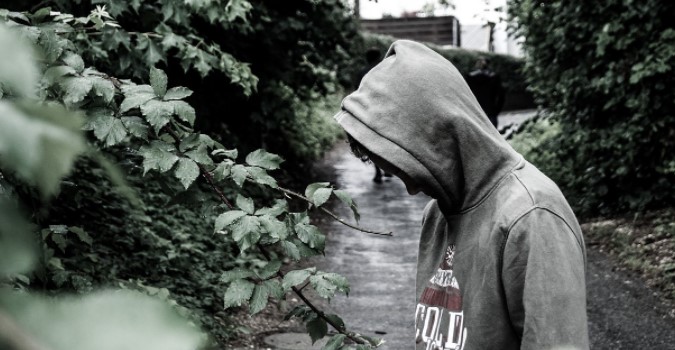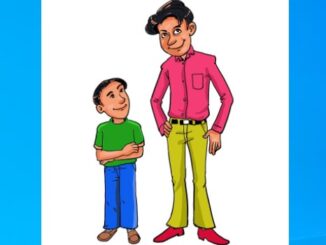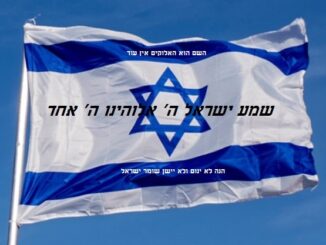
The Mishna in Uvos, Ben Zoma said: “Who is wise? He who learns from every man,” Pirkei Avos 4:1. The Torah tells us to learn from every person, from a good person we need to learn what to do, but from an evil person we should learn what not to do.
Furthermore, the gemura says (Rosh Hashuna 24:b)
וּכְתִיב: ״לֹא תִּלְמַד לַעֲשׂוֹת״ — אֲבָל אַתָּה לָמֵד לְהָבִין וּלְהוֹרוֹת.
You should not learn to follow their faiths, but you should learn to know what NOT to do.
לא תלמד לעשות. אֲבָל אַתָּה לָמֵד לְהָבִין וּלְהוֹרוֹת, כְּלוֹמַר לְהָבִין מַעֲשֵׂיהֶם כַּמָּה הֵם מְקֻלְקָלִים, וּלְהוֹרוֹת לְבָנֶיךָ לֹא תַעֲשֶׂה כָךְ וְכָךְ, שֶׁזֶּה הוּא חֹק הַגּוֹיִם (ספרי; סנהדרין ס”ח):
לא תלמד לעשות Thou shalt not learn to do [after the abominations of those nations] — thou shalt not learn to do, but you may learn their practices in order to understand them and to teach others, that is to say, to understand their doings, how depraved they are, and thus to be able to teach thy children, “Do not do so and so because these are the religious observances of the heathens!” (Sifrei Devarim 170:3; Sanhedrin 68a.)
It seems that parents are struggling with children (including adult children) who abandon God, Torah and Mitzvos. In order to understand the ways and motives of these children, we need to look in the Torah.
The first time the Torah discusses a person who abandoned Judaism, is about a woman named Miriam Bas Bilgah.
When the Greeks overtook Jerusalem and caused lots of harm to the Jewish nation, (See article where was Hashem at the Hitler Holocaust) Miriam went off the derech (OTD) and married a high-ranking Greek officer.
When the Greeks stormed the Holy Temple, she accompanied her husband, to the place of the altar. Upon reaching the altar, she kicked it, and screamed, “Wolf! Wolf!” (comparing the altar to a wolf that devours the daily offering of two sheep). “You consume the Jewish people’s wealth, but you don’t answer them in their time of need.”
Instead of looking at the nation who turned away from Hashem and were not good to one another, (Sinas Chinum – Baseless hatred) she blamed Hashem for her misfortunes and bad choices.
When the Holy Temple was finally restored and the priestly families resumed their sacred service, the family of Bilgah was punished for Miriam’s act of disrespect towards the altar. Their duties in the holy Bais Hamikdash were diminished.
The Gemurah (Sukkah 56:b) asks why was the entire family punished for the sins of one woman. After all, every person in responsible for their own choices in life. The Gemurah explains that the attitude which children express is what they learned at home. Miriam would never have said such words, calling the altar a wolf, if she did not hear the negative talk at home from either her father or from her mother on a regular basis.
The second time an off the derech child is mentioned in the Torah is a Jewish boy named Yeshua ben Yosef. The Torah discusses Yeshua who became known as the person who was always looking for excuses and blamed others for his actions.
First, Yeshua had a problem with the way his mother acted. His mother Miriam was a promiscuous woman, and as a result he was teased and sometimes called a mamzer (a person who is born as the result of certain forbidden relationships or incest.)
He developed a negative feeling towards his mother and blamed her for all his suffering.
When he grew up, Yeshua became a Torah scholar, so much so, that some of his words of Torah were included in the Gemurah.
The Gemurah tells a story. One day, Yeshua was with his teacher and several other students at an inn. Their hosts were very caring towards them. Before the group left, their teacher praised the hosts, as it states in the Torah (the angles by Avraham and Sarah CITATION AVAILABLE) that one should praise his female host in front of her husband and the male host in front of his wife.
CITATION AVAILABLE When the teacher praised the woman’s beauty, Yeshua blurted out and said Rebbe “this woman is very ugly, look at her eyes”.
The teacher was very angry at Yeshua’s insensitive and demeaning actions towards the woman and refused to speak with him. The Torah warns that המלבין פני חברו ברבים, אין לו חלק לעולם הבא one who embraces another in public loses his place in the world to come.
The Gemurah does not elaborate, perhaps the teacher wanted Yeshua to apologize to the women first, or maybe he saw that the student had a disregard to Hashem by saying that the woman was ugly. He did not criticize her as she did not create herself to look that way, but rather the criticism was towards her creator, which is Hashem. Such a comment showed a much deeper issue in the heart and mind of the student.
Yeshua decided to leave the Judaism and once again blamed his teacher for his actions and for leaving God’s ways.
He created his own Bible where he used all his negative experiences with his mother and other women to turn women into second class citizens, property of men, banning them from divorcing except for adultery, which he experienced with his own mother. This is the opposite of the Jewish Torah, where women are equal and in many cases on a higher pedestal than men.
He also encouraged his followers to take mitzvahs to the extreme in order to be “more stringent and more observant” than that of what Hashem commanded, leading people to believe that taking on stringency is a way of being more righteous, as they say holier than thou.
Throughout his life, from childhood and until the very end, Yeshua had the same issue all along, he never took responsibility for his actions and always blamed others for his suffering.
He never got married and never had children, He went on to preach his own laws, and he did not have many followers at the time.
At the age of 35, when the Roman’s killed him, Yeshua again claimed that he was being killed to atone for the sins of others. This too is against the Torah, as Hashem made it clear that no person is punished for the sins of others. (See article Stop Turning God Into a Boogie Man, people are punished for own sins).
Yeshua’s teachings became popular years after his death. Yeshua, is known for his English name Jesus, the leader and founder of Christianity. Throughout history, Jews have suffered terribly at the hands of Christians. They made uprisings and false accusation to kill Jews en masse.
To this day, Jews are still being persecuted by his followers, who still use his blame game and victim mentality to kill Jews around the world.
Arabs are children of Avraham Avinu and they worship Hashem. While Yeshua went to war with Hashem and brought Avodah Zarah to the world, which is still alive and being done by his followers to this day.
We see this same theme with children or adults who go off the derech. They always play victim and blame others for their suffering and refuse to take responsibly for their actions.
Throughout history, these off the derech children (also known as a Meshimodim) have caused great pain and harm to the Jewish nation. Blaming others, parents, schools or the nation as a whole in order to keep blame from themselves.
If you are a parent of such a child, 1) beware of the message you give your children at home. Your speech will directly impact them 2) if there is one thing you can change in your child, help them learn to stop blaming the world for their problems and suffering and to take responsibly for their actions.
Teach them that the Yetzer horah represents blaming and using our feelings to make decisions. Yetzer tov represents responsibility using the head and thought process to make decisions.

